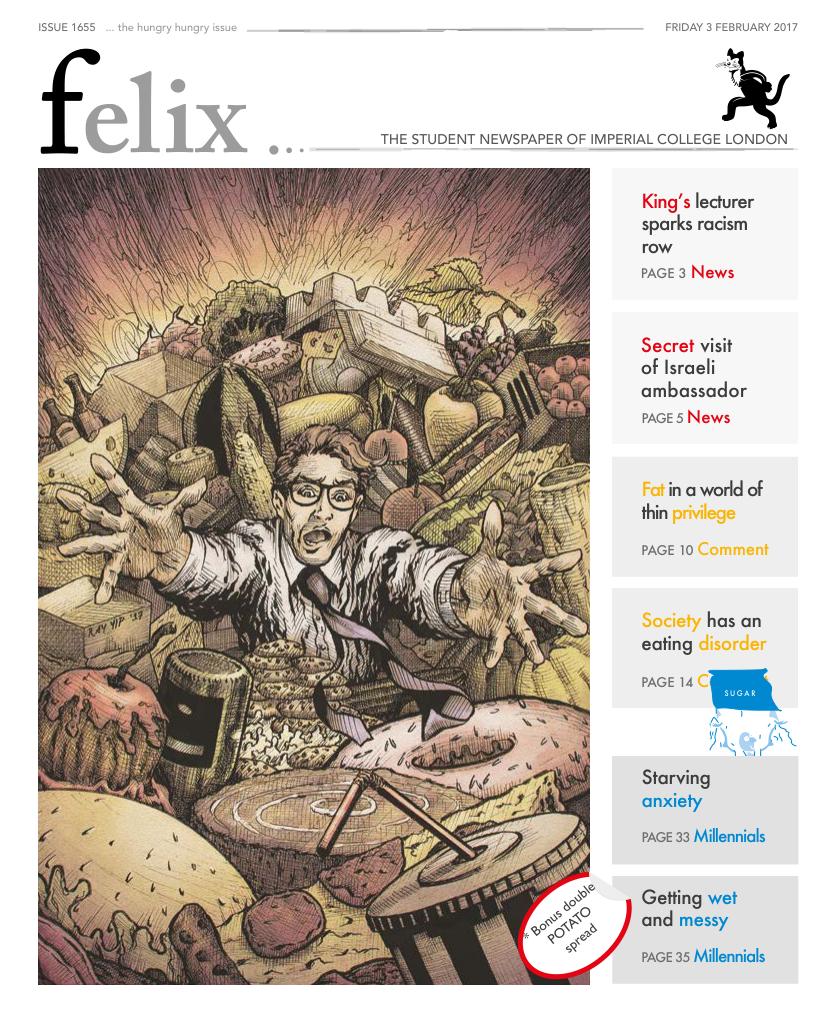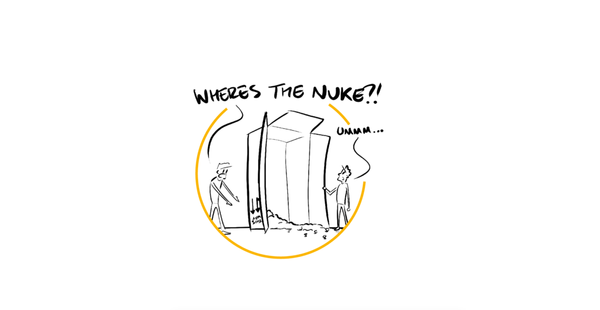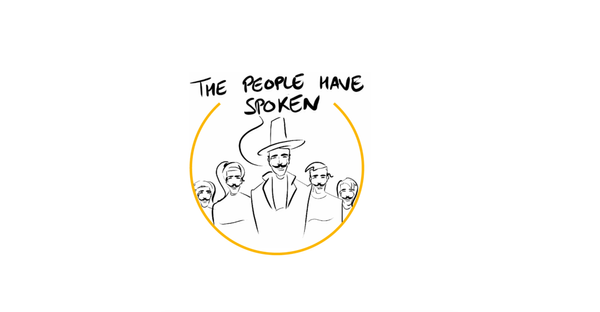You're putting me off my food
Tessa Davey explains why fat people are not afforded the privilege of 'normal' eating habits

I have a complicated relationship with food. I think every fat person does. That isn’t to say I don’t also think that every woman or man who is impacted by the pressure of beauty standards also does – I do – but for a fat person it is subtly different. Being fat is the reason that we are perceived as greedy, lazy, stupid. Fat is the reason that we are told that we are not attractive, not desirable, not good enough. And food is predominantly the thing that causes that. Food is something that we need to consume, several times a day, but it is also something that is heavily associated with shame.
The way that society interacts with me, a fat person moving through the world, greatly affects my relationship with food. If I, never having interacted with a foodstuff in public, had a totally healthy and normal relationship with food (to banish the rhetoric that all fat people are fat because they’re greedy and only eat fried food with cheese), my eating would become disordered the second I stepped out the door, simply through the way that people respond to me. As a fat person, this forced disordered eating is something that you have to tackle and struggle with every day of your life.
As a fat person, there are rules that you must follow. You must never be seen to be enjoying food (“Oh, well I can see why she’s fat, she loves her food, that one”). You must never eat anything unhealthy (“Are you sure you need to be eating that? No wonder you’re fat”), but also never anything healthy (“A salad, great choice! Are you trying to lose weight?”). You must never eat in transit (“You’re so disgusting, can’t you wait until you get home like everyone else?”) or mention hunger (“I bet you’re hungry. Can’t you go a few hours without eating?”), but you must also eat when others do (“If I’m hungry you definitely must be! Are you trying to lose weight?”). These are rules that all fat people know implicitly, rules that would never occur to someone thin, rules which are contradictory and that you cannot obey no matter how hard you try. There are further rules regarding the way you must dress and exercise in public, but those are a story for a different time.
These rules are self-imposed, you might say. No one is forcing you to follow these rules, but your self-hatred and deep lack of self-esteem. But this isn’t true. These rules are enforced by people on the street, by friends, by family. They’re enforced by vicious glances, by snide comments, by jokes and by concern. They mean that every interaction with food is carefully calculated to be invisible, to minimise the chances that someone might notice you eating and pass judgement. To not care and eat what you want is to make a political statement that requires huge energy to maintain. It is not weak to care, to suffer and to overcomplicate your life because you can’t take a joke from your friends or brush off a comment from a drunk stranger in McDonald’s at 4am on a Sunday. These interactions create a strong negative association with food, invoking feelings of panic and discomfort much like those that society is hugely sympathetic towards in ‘real’ eating disorder sufferers.
There is a rise in the diagnosis of illnesses such as binge-eating disorder and food addiction which give some credence to the difficult and out-of-control nature of eating for some overweight people. But these disorders don’t fit the majority of us. There is no diagnosis to tout for people who would have a 'normal' relationship with food were it not for their eating habits being called into question constantly.
I love food. That is, I love good food. I love the aesthetic and textures and flavour combinations that come with (what I think is) good food; I care less for the bland beige varieties, although that isn’t to delegitimise enjoying them if you do. I love that food can provide comfort through associated memories and nostalgia, and I love that it is something that brings people together. Seeking out new cuisines, tasting new flavours, and cooking are some of my primary hobbies, but I am always on edge doing them, ready to deflect comments or defend myself. The enjoyment I can take from food is always moderated by involuntary considerations of whether I deserve to eat it or what people around me will think if I do.
This isn’t to minimise the struggle that I know that so many of my thin or averagely sized friends face whenever they make a decision regarding food; I know that because of the pressure to remain thin in order to be successful, most, if not all women and men will often grapple with the choice between that ‘clean’ probiotic falafel salad (shout out to the stand at the Farmer’s Market – I think that the probiotic benefits of the pickles are probably cancelled out when I eat it with Diet Coke, but it’s still delicious) and that ‘dirty’ burger. But their struggle is purely internal. To be able to eat in front of someone without their making assumptions about your lifestyle, and more subtly and insidiously, your intelligence, is a privilege, and it is one that you do not have if you are fat: what we do on a daily basis to survive is shameful. I am absolutely a foodie, but unfortunately, I am usually one behind closed doors.










